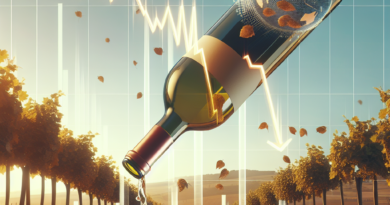Here are the commodities trading firms that are getting rich off the war in Ukraine
The commodities trading industry has amassed as much as $120 billion in cash reserves after five years of record growth, building a trove that major traders are ready to reinvest to strengthen their dominance.
The industry's reserves, estimated at between $70 billion and $120 billion in a study by consultant Oliver Wyman, are the result of a huge increase in profits in nearly every sector of the industry.
Gross profits from commodity trading activities, including those of banks, hedge funds, independent traders and asset-backed businesses such as BP and Shell, increased from about $36 billion in 2018 to a record $148 billion in 2022, largely due to fallout from the war in Ukraine, the study found.
In 2023, Oliver Wyman estimates that gross profits or margin – the amount made on operations before deducting costs such as taxes, salaries and bonuses – have reached $105 billion, down about 30% year over year, but still approximately double historical levels.
Independent traders — a group that includes Vitol, Trafigura, Gunvor and Mercuria — have been particularly successful, said Adam Perkins, a partner at the consultancy and one of the report's authors.
“As a result, people are just sitting on huge amounts of retained earnings and the question people are asking is: what can we do with all of this?” Vitol, the world's largest independent energy trader, made record net profits of $15.1 billion in 2022, paid an average of $785,000 in salaries and bonuses to its 3,311 employees and nearly doubled its share capital bringing it to $25.8 billion, according to accounts filed in the Netherlands.
The company, whose senior executives are largely based in London, is expected to share its 2023 accounts with its bankers this month.
Rival Trafigura reported record net profits of $7.4 billion in its latest financial year, which ended in September, and tripled the dividend paid to the company's 1,200 employee-shareholders to $5.9 billion.
One consequence has been a gradual "changing of the guard" with some of the trading firms using record profits to buy out wealthy executives and bring in others, Perkins said.
In September Trafigura restructured its senior team in the company's biggest top management reshuffle since the death of its founder Claude Dauphin in 2015.
At Geneva-based rival Mercuria, global head of trading Magid Shenouda is retiring from the company while is preparing for the arrival of Macquarie's former commodities head Nick O'Kane, who last year was one of the world's highest-paid bankers.
Record profits have also increased cash available to acquire mining processing and distribution businesses.
Vitol last month launched a 1.7 billion euro bid to acquire Italy's Saras, which owns the Mediterranean's largest refinery on the island of Sardinia.
In December, Switzerland-based Gunvor, which is majority owned by Swedish billionaire Torbjörn Törnqvist, agreed to buy a gas-fired power plant in Spain from BP.
Gas and electricity trading has overtaken oil as the largest source of profits in the sector, contributing to almost half of the sector's gross profits in 2022, according to Oliver Wyman.
Rapid earnings growth over the past five years has meant that scale has become increasingly important.
The most successful traders are the largest or dominant in a particular area, Perkins said, citing the success of two renewable energy specialists Statkraft of Norway and Vattenfall of Sweden.
“It's a large-scale game, but it also works on a relative scale,” he said.
“What we see are giants or niche operators.” © The Financial Times Limited 2024.
All rights reserved.
It may not be redistributed, copied or modified in any way.
The Financial Times is not responsible for the accuracy or quality of this translation.
Money.it has rights to republish some limited articles from the Financial Times.
This is not a live feed of Financial Times content.




